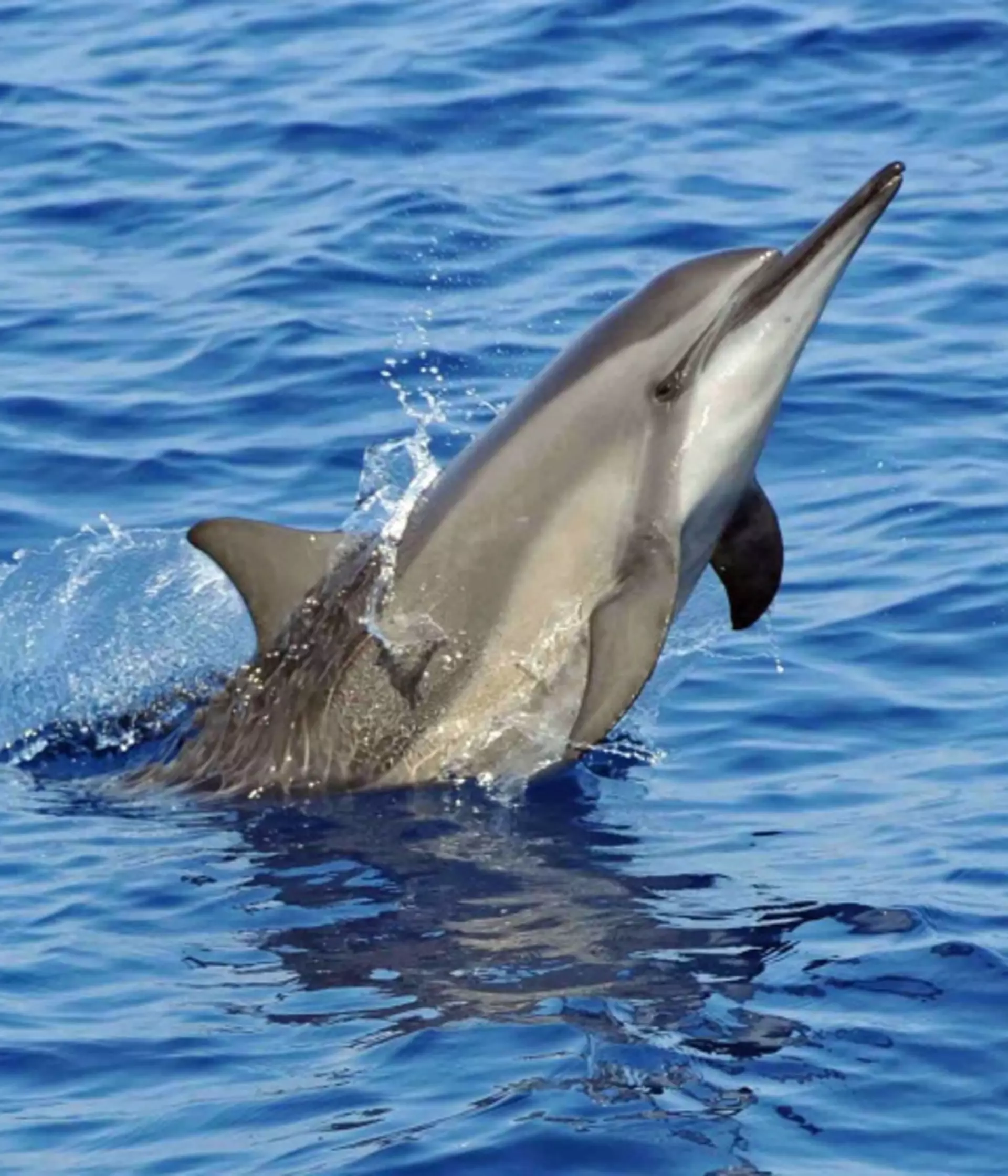ZSL
Zoological Society of London
Spinner dolphins (Stenella longirostris) are giving threatened coral reefs in the Maldives and the Chagos Archipelago a helping hand by depositing vital reef-enhancing nutrients in shallow lagoons, via their excrement.
Led by ZSL (Zoological Society London), a new study published Monday 4 July 2022 in the Journal of Zoology has estimated that the amount of nitrogen taken in by spinner dolphins during their daily commute to foraging grounds can enhance coral reef productivity and resilience. The study suggests that these dolphins play a significant role in supporting struggling coral reef ecosystems across the Chagos Archipelago.
Using a combination of visual observations and hydrophone recordings of dolphins – some stemming from whale watching trips with tourists from the Maldives – researchers noticed that the dolphins enter coral atoll lagoons during the morning, where they then spend approximately half of their day resting, only leaving in the afternoon to hunt and forage in deeper waters at night.
Using metabolic models, the conservation experts estimated that one dolphin pod would produce around 288kg (about the weight of three or four human adults) of reef-enhancing nitrogen inside shallow water lagoons, during resting sessions.
Coral reef ecosystems support some the highest marine biodiversity in the world as well as sustaining over six million people’s livelihoods. The ecosystem they form in tropical regions such as the Chagos Archipelago support an oasis of biodiversity. In the clear waters of the Maldives - where clear, pristine ocean is often seemingly unproductive – coral reefs are critical for local livelihoods. However, while these habitats are critical for both human and marine life they are also highly threatened by the current biodiversity crisis, especially from climate change which can cause extreme stress on reefs, leading to coral bleaching and mass die off.
Lead author and marine research fellow at ZSL’s Institute of Zoology, Dr Tom B Letessier said: "Coral reefs are facing profound threats around the world, including climate change and biodiversity loss, but this research has identified a clear ally for them; spinner dolphins.”
“By analysing over thirty years of visual observations of spinner dolphins as well as 6 months of acoustic recordings, we confirmed that this species are daily commuters from offshore areas to shallow water. Dolphins are deep feeders but come back to sheltered lagoons to rest which is when they deposit around half of their crucial, nutrient rich excrement.”
"Simply by going to the toilet in the shallow atoll lagoons, these dolphins are providing a vital nutrient supply for the corals - making the strongest possible case for protecting the dolphins in order to save these reefs."
The new study shows that spinner dolphins are the most abundant cetacean known to frequent the waters in the Maldives and wider Chagos Archipelago. The night feeding mammals eat smaller marine life that migrate up from the ‘mesopelagic’ area of the ocean, between 200 to 1,000 metres below the surface of the water, which is believed to hold staggering amounts of prey important for many wildlife species.
Tom B Letessier added: “These nutrients are important for coral reefs which are threatened by coral bleaching and other stressors. It’s exciting to have found a likely important mechanism by which the dolphin’s behaviour could be sustaining the health of surrounding reefs. This study is just the first piece in a bigger puzzle which we will explore further as part of our new regional scientific cetacean project.”
Spinner dolphins are known to be highly dependent on shelter for resting and strongly associate certain behaviours with certain times of the day. The study goes on to explain that this means they are likely very sensitive to human disturbance and cites the legal protections offered by the Maldives and local fishery practices (which use pole-and-line rather than net fishing) as some of the positive reasons that they have thrived in the area.
The nutrients spinner dolphins deposit, through their excrement adds to the growing body of evidence suggesting that megafauna such as marine mammals, could have a significant role in the fight to save coral reefs around the world.
Co-author and marine conservation expert based in Maldives, Dr Charles Anderson said: “Spinners are the super-abundant dolphins of the tropical Indian Ocean. Although well protected in the Maldives and the Chagos Archipelago, they are subject to high levels of bycatch in gillnet fisheries elsewhere in the region. This study, which demonstrates the potential importance of Spinner Dolphins to the health and resilience of coral reefs, underscores the need for improved conservation of cetaceans and management of fisheries across the Indian Ocean.”
The new research forms the first part of a wider project funded by The Bertarelli Foundation dedicated to exploring the cetacean species and their abundance using hydrophones and visual surveys in the Chagos Archipelago. Co-led by Tom B Letessier and colleagues, the team which will include local ocean experts, hope to gather more evidence to determine whether the distribution of the spinner dolphins (or other species) correspond well with indicators of healthy coral reefs.
As we enter a landmark season for our ocean, with international conferences such as the UN Ocean Conference and COP15 putting a much-needed spotlight on the big issues impacting biodiversity, ZSL is calling for world leaders to put nature at the heart of all global decision making.
